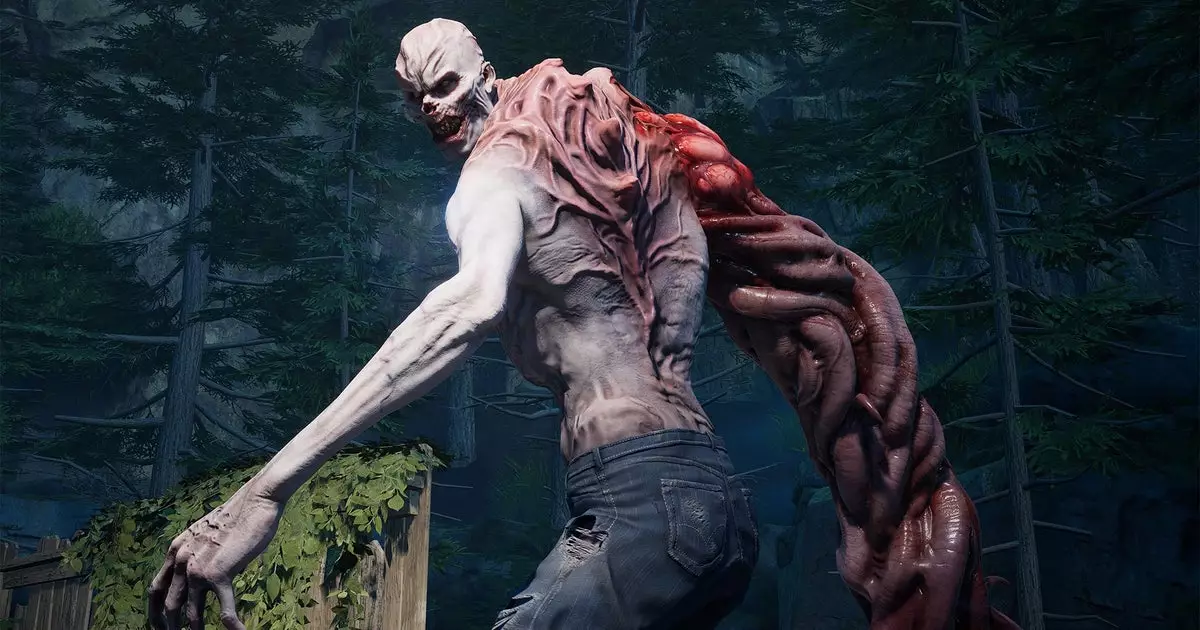In the unpredictable realm of video games, even the faintest whisper of a sequel can trigger a cascade of expectations and wishes from devoted fans. The anticipation surrounding studio announcements often cultivates a vibrant atmosphere where dreams and hopes take precedence over reality. As gamers, we sometimes forget to temper our aspirations with a dash of realism, which can lead to frustration when faced with disappointing outcomes. Such is the situation with Turtle Rock Studios, the developers behind the celebrated cooperative shooter saga, Back 4 Blood, which has many in the gaming community clamoring for something more—specifically, a successor to their earlier endeavor, Evolve.
The notion of a potential sequel to Back 4 Blood has emerged from dubious internet rumors and stray comments from its creators, showcasing how easily we cling to the possibilities of a game that hasn’t even been officially announced. The case in point is Jesse Hutch, a performer allegedly involved in motion capture for the game. His cryptic mention of “Gobi 2” hints at what could either be a sequel or an entirely different project altogether. For those familiar with video game development, it’s common for entirely valid speculation to emerge from the simplest of breadcrumbs, but without substantial evidence, it leads to what can feel like false hope.
Back 4 Blood’s Missed Opportunities
Reflecting on the journey from Left 4 Dead’s tight-knit cooperative experience to Back 4 Blood’s sprawling design reveals a striking divergence in gameplay philosophy. While Turtle Rock aimed to deliver an energetic revival, many players felt that the essence of their earlier success was lost in translation. Critiques of Back 4 Blood often highlight its conversion of a once pulse-pounding experience into one filled with bullet-spongy adversaries and overwhelming spectacle, a significant departure from the skill and strategy that defined Left 4 Dead.
One of the most compelling points of criticism revolves around gameplay mechanics that favor weapon customization and hoarding. For fans of the genre, this can feel like an imposed necessity rather than a tactical choice, contrasting sharply with the simplicity and immediacy that characterized its predecessor. Graham’s observations about the game’s pacing shift resonate, as they underscore how a focus on spectacle can dilute the immersive tension players cherished in earlier titles.
To be fair, Back 4 Blood certainly provided its audience with entertaining moments and camaraderie, but many players—including Graham—simultaneously recognize that its departure from core elements is what stifles its potential. Hence, when contemplating a sequel, the fear of repeating these mistakes lingers in the air.
Venturing into the broader context of cooperative multiplayer experiences, Evolve stands out as a unique breed that left a stark impact on its players. With its asymmetrical gameplay, it challenged conventions by placing one player in control of a fearsome monster, while the remaining team members strategized as hunters working together to confront the colossal threat. The game’s innovative mechanics encouraged tactics that balanced aggression with caution, testing each player’s adaptability in various scenarios.
Given Turtle Rock’s legacy, the desire for a sequel to Evolve isn’t simply about nostalgia; it’s a heartfelt plea for the resurgence of originality in gaming mechanics. Stripping down the clutter that often accompanies contemporary titles could allow developers to innovate and reimagine what competitive multiplayer can offer. The interplay between the hunters and the monster itself created thrilling moments ripe with possibility, and there’s ample room for another title exploring this dynamic creatively.
Imagine if Turtle Rock decided to breathe new life into their beloved monster-hunting franchise, simplifying the unlocks and focusing instead on enriching gameplay experience. A sequel could capitalize on the whimsical nature of monstrous antics, allowing players to engage in a fresh environment while retaining the epic scale of the original. Perhaps Jesse Hutch could step into the shoes of a new Goliath, further solidifying the link between players and characters through immersive motion capture.
As we wait with bated breath for any formal announcement regarding Back 4 Blood 2 or perhaps an Evolve resurgence, it’s important to approach these discussions with a balanced mindset, relishing in the hope but remaining vigilant against disappointment. The gaming community is rich with inventive ideas and critiques, and within that spectrum lies the potential for remarkable experiences.
The clamor for innovative sequels like Evolve is a demonstration of our investment in the gaming sphere. It reflects our desires not just to relive past glories but to encourage developers to forge bold new paths. As the gaming landscape continues to evolve, we must remain hopeful and critical, acknowledging both what has succeeded and what can be improved. Perhaps through these dialogues and aspirations, we can inspire a wave of creativity that leads to unforgettable gaming experiences in the future.


Leave a Reply